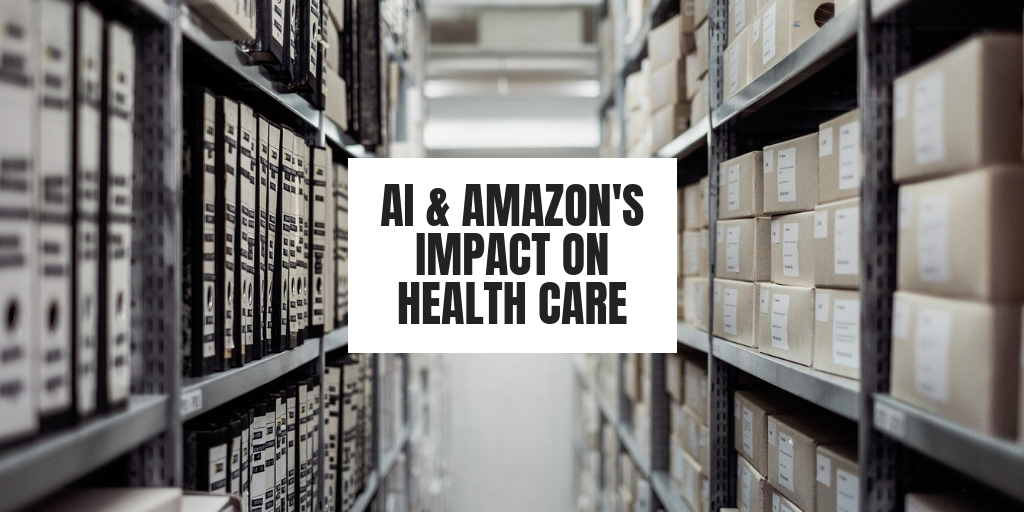Amazon made headlines recently in scrapping a behind-the-scenes application of artificial intelligence the company used in recruiting talent. The machine learner's fatal flaw? Gender discrimination.
"Amazon's computer models were trained to vet applicants by observing patterns in resumes submitted to the company over a 10-year period," reports Reuters. "Most came from men, a reflection of male dominance across the tech industry. In effect, Amazon's system taught itself that male candidates were preferable."
What we've learned about artificial intelligence.
This news comes as no surprise to members of the Health Professions Network who joined us at our Fall Meeting in Fort Lauderdale, where we explored issues related to artificial intelligence in health care. "Because we don't have a detailed understanding of what's going on inside of the 'black box' learner, we assume that the outputs are correct," said John Licato, PhD, Director of the Advancing Machine and Human Reasoning Lab at the University of South Florida at our Fall Meeting. "But that might be a bias in the underlying data."
At the core of this artificial intelligence mishap is the maxim: "Garbage In, Garbage Out." Machine learning relies heavily on the quality of its data. Biased data used to "teach" the machine will result in biased outcomes in its analysis. Health Professions Network members can find Licato's presentation and more resources on machine learning in our members-only area.
Amazon's foray into artificial intelligence has significant takeaways for the health care industry and its professionals. Amazon ultimately disbanded the team behind the machine learner "because executives lost hope for the project," reports Reuters. To some degree, this news reflects a progression forwards and downwards in the Gartner Hype Cycle for Emerging Technologies, which in 2018 showed Deep Learning Neural Networks, advanced artificial intelligence technology, at the very peak of inflated expectations:

But organizations will likely continue attempts to streamline or augment expensive and time-consuming hiring processes with the aid of machine learning technology. And despite the misleading hype, Gartner's visualization predicts Deep Learning Neural Networks to reach the plateau of productivity in only two to five years. The graduating class of 2021 could be hired with the help of machine learning algorithms.
Artificial intelligence will impact health professions in significant ways, which makes a detailed understanding of machine learning, its potential impact and its limitations, all the more valuable to forward-thinking professional associations. HPN members can find a Primer on Machine Learning in our members-only area.
Amazon's potential impact beyond artificial intelligence.
Of course, this story jumped out at us not only because of the potential impact of artificial intelligence on professions and hiring, but also due to the potential impact of Amazon on health care, in general. This article from CNBC in March does a good job of summarizing Amazon's potential impact from different directions. Here are some significant takeaways:
- Amazon's independent joint venture with J.P. Morgan and Berkshire Hathaway will look to rethink, improve and cut the cost of health care for their 1.2 million combined workers—potentially changing health care for the more than 150 million individuals insured through their employers in the U.S.
- Amazon's supply chain dominance, key partnerships and application for state-by-state licenses poises it to make a big impact in the medical supplies market.
- Amazon may be poised to make a splash in the pharmacy space, with an exploratory team of more than 30 people. Hiring patterns indicate a broad, exploratory strategy in health care.
- Experts expect Amazon to lead the way in health care consumerism.
Hype continues to surround the independent joint venture which named Dr. Atul Gawande Chief Executive Officer in June, who quickly took aim at "middlemen" in the health care system, according to Bloomberg.
Interestingly, Amazon, Berkshire and J.P. Morgan have consistently stated that the initiative has a long time horizon. Berkshire CEO Warren Buffet said, "We're not in a hurry," to Bloomberg TV ahead of the announcement that Jack Stoddard would be Chief Operating Officer in September, more than two months after Gawande's appointment.
But if this initiative was only playing to make hype cycle headlines, it might be easier to dismiss. This is an initiative that will look to make a thought-leader impact in health care regardless of what the future of health care looks like. CEO Gawande supports government-guaranteed health insurance for all, saying, "Even though I’m going to work for a bunch of employers, employer-based care is broken," following his appointment.

HPN and industry's impact on health care.
The Health Professions Network stays on top of employer-led initiatives that may impact health care. In Louisville in the Fall of 2016, we heard from the Kentuckiana Health Collaborative which was an employer-led collaborative aimed at tackling the rising costs of providing health care to employees. HPN members can access notes and slides from that meeting as a refresher. At our Fall Meeting in Fort Lauderdale, we heard from Jason A. Tyszko of the U.S. Chamber of Commerce Foundation about their initiative to improve employer signaling in the talent pipeline.
Going forward, we expect more thought-leadership and impactful initiatives from industry players outside of health care—putting more cost pressure on the health care system or seeking more aggressive and preventative population health solutions for their employees. We also expect health care employers to continue to impact the health talent pipeline in a more intensive, customized way.
Industry Impact will be the guiding theme of our upcoming Spring conference, where we'll be hearing from industry experts and diving into issues like what Amazon is doing, and how it will affect non-physician health care professionals. If you're not a member, consider joining HPN so you can keep up with these impactful conversations, and join us at our Spring Meeting!
Learn more about our spring conference »

